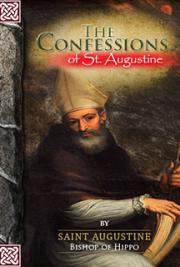CHAPTER XII
PAUL AND VIRGINIA
Life on a tea-estate--My animal friends--Two brown bears--Brutus, the monkey--Always in mischief--The Brazilian Macaw.
At Colombo I basely deserted Chang, leaving him to the charge of his kind friend the butcher, who dispatched him, on the steamship Kaiser’s arrival at Southampton, to my cousin at Aldershot; and for some weeks I heard no more of my old favourite.
We stayed a few days at Colombo, and from there took a small steamer up to Assam, where my father had a tea-estate, which needed his personal supervision for a time. The change after my gay and busy life in Japan was very great. My father was away riding all day, and I was left alone at the bungalow except for the natives belonging to the estate, who could hardly be considered companions.
At first I felt rather forlorn and desolate, and longed more than ever for some girl friend to keep me company, but gradually I became very dependent upon the society of a large and strange variety of animals, to which I grew very much attached. Endless are the tales I could relate about the faithfulness and sagacity of various of my horses and dogs--to say nothing of birds of all descriptions, from the macaw--which saved my life from a desperate thief one night by his keen sense of hearing when I was alone in the bungalow--to the little bantam hen that laid an egg for my breakfast every morning on my bed.
My strangest companions, I think, however, were two brown bears who went by the names of Paul and Virginia. Why they were thus called I forget. My father found them as little cubs about three weeks old in the jungle, their mother having been killed a day or so previously by one of the men on the estate. The poor little beasts were nearly starved when I first saw them, but they rapidly recovered after having a few pints of warm milk poured down their throats. We fed them out of an old soda-water bottle wrapped in flannel, and it answered the purpose admirably.
As the cubs grew older they became the most delightful little creatures, and as playful as two kittens. Paul was always the larger and stronger of the two, but little Virginia was like a ball of brown fur, and had the gentlest and most winning ways imaginable. Like all bears, they dearly liked water, and we had a zinc bath made for them in the compound, in which they would sit for hours during the heat of the day--one at one end of the tub, and one at the other; swaying their bodies backwards and forwards as if they loved to hear the splash of the water against the sides.
As Paul grew bigger, however, he found that there was not sufficient room for him and Virginia to bathe together; so, hurrying to the bath a little before the appointed bathing hour, he would jump in, lie down flat at the bottom of the tub, and effectually prevent his sister from taking her morning ablutions until he had finished, and the water had become most distinctly muddy. Poor Virginia’s face was a study. Round and round the bath she used to pace, uttering from time to time a plaintive whine, but all of no avail; Paul ignored her existence completely until his morning bath was finished, although at other times they were excellent friends--in fact, a most devoted couple.
They had a constant companion in the shape of a small gray monkey named Brutus. Now, Brutus may have been ‘an honourable man,’ but my Brutus was a most dishonest monkey. Had it not been for his strange friendship with the bears, I think I could not have stood his vagaries. Nothing was sacred to him. Once my brush and comb disappeared, and when all efforts to find them had been unavailing, I heard a mocking chuckle, and discovered Brutus on the roof calmly brushing and combing himself with my lost property, just as he had, doubtless, observed me doing. Needless to say, when my brush and comb came into my possession, they were not of much further use to me.
I cannot mention a quarter of Brutus’s many offences and mischievous ways. If only he had exercised his talents in some useful capacity, he would have been, indeed, a valuable addition to the family. He nearly put an end to himself one day by trying to shave his little gray chin with my father’s razors; and had I not been near at the time and heard his piteous and truly human yells, he would certainly have bled to death, as he had given himself a frightful gash behind the neck, completely severing one ear. His appearance for several weeks afterwards resembled an old woman with the toothache, and it was a long time before he ventured into my father’s room again, although he made up for it by persecuting the cook almost to distraction. He was an intensely jealous little beast, and took a most violent dislike to a black kitten belonging to the kitchen regions. One day the kitten disappeared, and the poor little thing’s body was found in a saucepan of boiling soup. Brutus, in a fit of jealous rage, had thrust his victim into the saucepan on the fire, carefully replacing the lid so that no escape was possible.
The monkey’s friendship with the bears was purely mercenary. He was a lazy little beast, and found that riding was the pleasantest way of getting about the country. He therefore used to accompany Paul and Virginia in all their expeditions, springing lightly on the back of one or the other, holding on by their thick brown fur, and sticking to his seat like any jockey.
It was the funniest thing in the world to see the trio starting off for a long excursion into the jungle; and I think in time that Bruin and his sister got quite fond of their little master.
The bears’ favourite sleeping-place was at the top of a short, stunted tree just outside my room. This had its disadvantages, as their presence attracted other bears from the neighbourhood, which had not the friendly and harmless dispositions of Paul and Virginia. From time to time numerous ducks and chickens began to disappear in a mysterious way. A small and favourite dog also vanished, and, during the night, we frequently heard sounds of stealthy footsteps on the veranda, and, although my father rushed out with his gun to investigate, nothing was visible. In the morning, however, the invaders were tracked right into the jungle, as, wherever they had come, they had left devastation behind, tearing up roots, breaking down hedges, and doing terrible damage in our vegetable garden. In vain were traps laid, and coolies set to watch round the house. All was of no avail. Our live-stock grew gradually less and less, one by one the fowls disappeared, and we were in despair. Affairs reached a climax, however, one morning, when one of our coolies was missing, and, after a long search, his mangled remains were discovered some distance from the house, evidently the victim of the midnight invaders.
This settled the question. Paul and Virginia must go--but where? Although they would have been accepted at the Zoological Gardens in Calcutta, we did not like the idea of subjecting them to confinement in a cage. At last my father reluctantly decided to shoot them; and one morning a court-martial was held in the compound, attended by all the coolies on the estate; a grave was dug, the condemned were led out, two reports resounded through the still morning air--one following quickly after another--two brown heaps lay on the ground motionless, and now nothing is left of poor Paul and his sister but a grassy mound, with a little wooden inscription bearing their names and the date.
Poor Brutus felt the loss of his companions keenly, and for several days refused to take food. In fact, I quite thought he would have died. But one morning, on looking for him in his box where he always slept, I found he had disappeared. I hunted for him in vain, and had just come to the conclusion that he must have committed suicide from grief, when one of the coolies came to me in great excitement to say Brutus had been seen riding one of the goats. True enough, riding in state on one of the largest goats in the herd was seen the truant, looking very proud of himself, and seemingly perfectly content with his new companions. How the goats approved of their rider I cannot say; anyhow, willing or unwilling, they had to put up with his company. Every morning, as soon as the herd were released from the enclosure where they passed the night and turned out on the hills, Brutus would spring on to the back of the foremost goat and disappear with them for the day, only returning at evening for his supper.
About this time my supply of goat’s milk, which I always took for my breakfast and supper, began to diminish. I inquired the reason of the cook, but could get no satisfactory solution. The quantity became less and less, and one day I was informed with many apologies that there was none, as Brutus had taken it all!
Thinking that probably the coolies were cheating me and selling the milk, I abused every member of the household roundly, and threatened, if no milk were forthcoming for my supper that evening, they would one and all be dismissed.
At sunset that evening, however, my cook came and begged me to come with him to the enclosure where the goats were being milked. On my arrival there, what was my amazement to see Brutus calmly milking one of the goats, drinking a little from time to time with much relish, whilst the remainder trickled along the ground in a long white stream. The goat seemed perfectly unconcerned, and stood quietly nibbling some grass as if nothing unusual was occurring. We then discovered that all the other goats had already been milked, probably at intervals during the day, whenever it suited the pleasure and wishes of Master Brutus, who evidently seemed to consider that he was performing a very meritorious action. I thought differently, however. I was particularly fond of goat’s milk, and I was in a country where good things were not to be had for the asking, nor for money either, for that matter.
So after this I decided to shut Brutus up in a large cage, anyhow for a time, until I could find some other plan to keep him out of mischief. For the next few days I was away from home a good deal riding in the district with my father, and did not notice Brutus particularly. Naturally he would be feeling somewhat bored, but a little punishment would do him good.
One evening about a week later, on returning home from a long ride, I went as usual to take the little prisoner his supper. I thought the cage seemed unusually quiet, but supposed he was asleep. On looking in, however, I saw a tragic sight. How it had happened, to this day I know not, but suspended by a long string from the top of his cage hung Brutus quite dead, evidently strangled. One end of the string still fastened together a portion of the roof of his wooden prison; the other end was tightly wound round and round his little gray throat.
I have never kept another monkey. They are too human.
The only other member of my happy family that I brought home to England was the Brazilian macaw, which I have already mentioned. Arara is, without exception, the most beautiful and by far the most intelligent bird I have ever seen. I have him still, and long may he live, for he will never have an equal. I believe he is about a hundred and fifteen years old; but as the macaw belonging to the Emperor of Japan is on the best authority a hundred and thirty years old, there is every hope my old favourite may still have many years before him. Arara formerly belonged to a naval officer, who brought him from Rio de Janeiro, where his ship was stationed. On leaving there Captain R---- brought the macaw with him to Colombo, but the long confinement in a cage much too small, and indifferent food and treatment, affected his health and temper so much that my friend decided to part with him, and I became the happy possessor of Arara. It is difficult to describe his plumage and its wonderful combination of different colouring. His back and breast are bright crimson, his tail feathers a vivid electric blue, and his wings emerald green. His eye is a bright yellow--I say eye advisedly, as he possesses but one, owing to a fight on board ship with a young eagle. This loss, however, rather adds to his personal appearance, giving him a most cunning expression as he gazes down from his perch, always on the alert as to what is going on.

ARARA
Although Arara’s vocabulary is not large--these macaws are rarely taught to speak--he says a few words very distinctly, and his imitation of other animals is quite extraordinary.
Often I have hunted vainly for a cat in my room, hearing a piteous mewing, and thinking one must be imprisoned in some cupboard, and all the time it was Arara sitting on a branch of a tree below my window. His imitation of the bleating of sheep, the cackling of hens, and the crowing of cocks would puzzle the most observant.
I must not forget to mention what happened to that Chinese rascal Chang after we left him at Colombo. Hearing nothing of him for over two months, I fondly imagined he had settled down in England a respectable and civilized dog. Alas, this was anything but the case.
One morning a letter arrived from my cousin at Aldershot, saying that, after fighting with every dog in the regiment and mortally wounding two pedigree poodles, that terrible chow-dog had finally and hopelessly disgraced himself by appearing one morning on parade, completely disorganizing the men, who were drawn up at attention, by wildly careering, up and down between the lines, and jumping up at any he chanced to recognise--a performance which did not improve the appearance of their spotless pipe-clayed belts and clean tunics, the morning happening to be rather muddy.
Finding that his affectionate greetings were not appreciated, Chang next turned his attention to the legs of the Colonel’s horse, thereby much disturbing that noble steed and his rider.
‘Whose dog is that?’ roared the Colonel, casting an infuriated glance upon him.
‘Captain X----’s, sir,’ replied the orderly.
‘Confound it! what does he mean by keeping such a brute? Tell Captain X---- to have the dog removed from the barracks immediately.’
Oh, I blush now to think of Chang’s disgrace. He was promptly billeted at a neighbouring inn; but an evil spirit seems again to have possessed his Celestial brain, and he was returned a few days later ‘with thanks,’ and an alarming bill for the slaughter of numerous chickens and ducks.
His subsequent career, I grieve to say, was a long succession of iniquities. On our arrival in England we took him down with us to Norfolk, thinking there he must be out of harm’s way. At first all went well. He spent his time meekly lying under the dining-room table, looking as pious as a China pug. But, alas! he chanced one day to observe one of those irresistible pheasants he used to chase in the mountains of Japan. From that moment he was lost. Furious keepers brought tales of a ‘great yallow, savage baste havin’ scared them thur burds, ‘til there’s no doin’ northin’ with ‘em’; of nests destroyed, coops overturned, and countless other offences too numerous to recount. Chang narrowly escaped being shot on more than one occasion; and from that time until his departure from the land of game he was securely imprisoned in the stable, there to repent his sins in solitude.
What was I to do with such a dog? My friends urged me to sell him, and I had several excellent opportunities of doing so, but I could not in that mercenary fashion part with my old companion.
Looking back on those days now, I marvel that we were not banished from civilized society; but it is a long lane that has no turning, and at last Chang began to reform. Whether it was the wire-muzzle I made him wear, or the recollection of the well-deserved and severe thrashing he received on the terrible occasion when he worried a flock of sheep, I know not; but slowly and surely he gave up his many evil ways, until at length he became the steady, sober watch-dog and ever constant and faithful companion he is now.
As I look at my old favourite stretched out on the hearthrug at my feet in a way peculiar to chows, I realize that we ran a great risk of getting ourselves disliked in those days. It is of no use for him to pretend he does not understand me, as I know by the placid smile on his wicked old face and the sly wink in his sleepy eye that he does so perfectly.
But I often wonder if dogs have any memories of the past, and if Chang sometimes thinks, as I so often do, of those happy, far-off days in fair Japonica.

WELLS GARDNER, DARTON AND CO., LTD., LONDON









